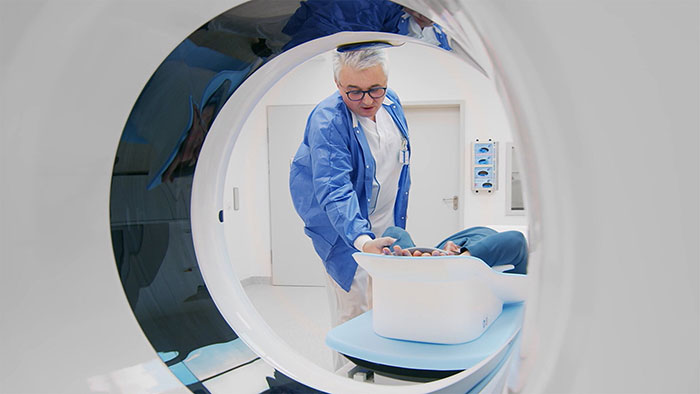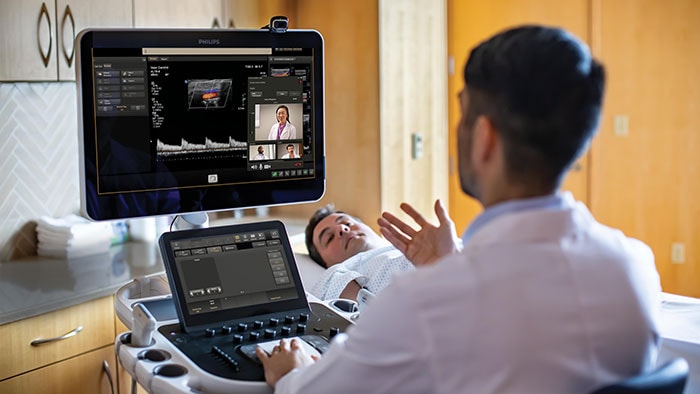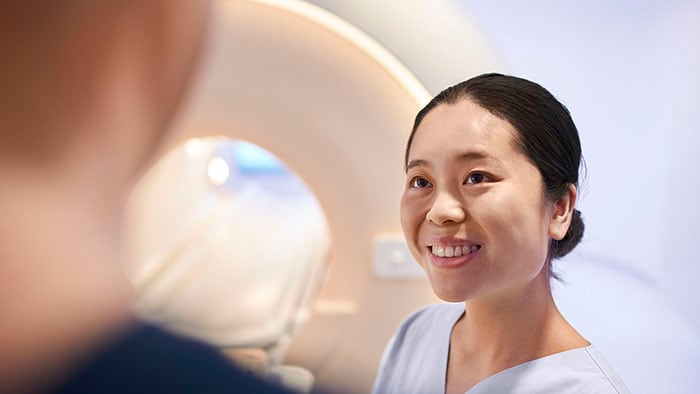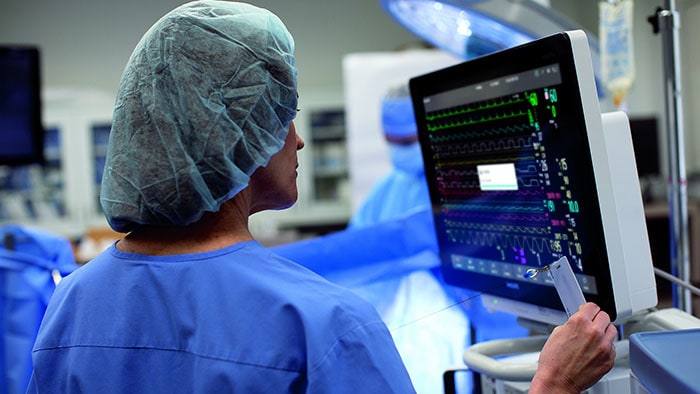Jan 25, 2021
Philips' Fourth Quarter and Annual Results 2020
Philips delivers Q4 sales of EUR 6.0 billion, with 7% comparable sales growth; income from continuing operations increases to EUR 608 million, Adjusted EBITA margin improves 110 basis points to 19.0%, and operating cash flow increases to EUR 1,305 million
Fourth-quarter highlights Full-year highlights Frans van Houten, CEO of Royal Philips: “Against the backdrop of the ongoing COVID-19 pandemic, we continued to support healthcare providers and medical staff with the provision of both acute COVID-19 care and regular healthcare. In the quarter, Philips entered into 25 new long-term strategic partnerships with hospitals in the US, Europe and Asia, to help them achieve their clinical and operational goals with our integrated solutions. We also supported consumers in their homes with telehealth solutions such as tele-dentistry services and remote monitoring.
I am pleased that, as a result of these efforts, in the quarter we recorded 7% comparable sales growth for the Group and 7% comparable order intake growth. The Adjusted EBITA margin improved by 110 basis points, and we delivered a strong free cash flow of EUR 1,055 million.
We launched several new products and solutions in the quarter, including the Philips Shaver Series 1000 that specifically addresses the personal care needs of young men in China. We also introduced our next-generation IntelliSpace Portal advanced visualization workspace with AI capabilities to support a precision diagnosis. To expand our Connected Care solutions, we signed agreements to acquire BioTelemetry and Capsule Technologies. These acquisitions will further broaden and scale Philips’ patient care management solutions for the hospital and the home to enhance patient outcomes, streamline clinical workflows and increase productivity. We target significant revenue synergies, and these businesses will be accretive to Philips' sales growth and Adjusted EBITA margin in 2021. This is another important step in our strategy to become a leading solutions provider.
As a result of our stronger performance in the second half of the year, following a challenging first half due to the impact of COVID-19, our performance was resilient. For the full year 2020 we delivered 3% comparable sales growth, an Adjusted EBITA margin of 13.2% and a strong free cash flow of EUR 1.9 billion. Moreover, driven by 9% comparable order intake growth, we continued to gain market share in our healthcare businesses, and ended the year with a strong order book.
I am very grateful and proud of the commitment, resourcefulness and hard work of our more than 80,000 employees in 2020. Through our efforts, we were able to deliver against our triple duty of care - meeting critical customer needs, safeguarding the health and safety of our employees, and ensuring business continuity.
Looking ahead, we continue to see uncertainty related to the impact of COVID-19 across the world. For 2021, Philips plans to deliver low-single-digit comparable sales growth, driven by solid growth in Diagnosis & Treatment and Personal Health, partly offset by lower Connected Care sales, and an Adjusted EBITA margin improvement of 60-80 basis points.”
Business segment performance
The Diagnosis & Treatment businesses returned to growth, with 1% comparable sales growth in the quarter, driven by high-single-digit growth in Diagnostic Imaging. Comparable order intake showed a 3% increase, compared to a 5% decrease in the previous quarter. The Adjusted EBITA margin decreased to 14.0%, mainly due to mix changes. For the full year, the Diagnosis & Treatment businesses recorded a 2% comparable sales decrease and an Adjusted EBITA margin of 10.0%.
Comparable sales in the Connected Care businesses increased 24% in the quarter, with double-digit growth in Monitoring & Analytics and Sleep & Respiratory Care. Comparable order intake showed a 17% increase, with strong growth across all businesses. The Adjusted EBITA margin increased to 27.2%, due to operating leverage and productivity programs. For the full year, the Connected Care businesses delivered 22% comparable sales growth and an Adjusted EBITA margin of 21.5%.
The Personal Health businesses delivered a comparable sales increase of 5% in the quarter, with double-digit growth in Domestic Appliances and mid-single-digit growth in Personal Care. The Adjusted EBITA margin was 20.0%, in line with Q4 2019. For the full year, the Personal Health businesses recorded a 4% comparable sales decline and an Adjusted EBITA margin of 13.0%.
Philips’ ongoing focus on innovation and partnerships resulted in the following key developments in the quarter and the year:
Cost savings In the fourth quarter of 2020, cost savings totaled EUR 123 million, with procurement savings of EUR 67 million and savings from overhead and other productivity programs of EUR 56 million, resulting in annual savings of EUR 447 million in 2020. As a result, Philips has delivered EUR 1.9 billion productivity savings for the Group over the 2017-2020 period, exceeding the target of EUR 1.8 billion.
Report Fourth Quarter Results 2020 - Report Presentation Fourth Quarter Results 2020 - Results Presentation Conference call and audio webcast A conference call with Frans van Houten, CEO, and Abhijit Bhattacharya, CFO, to discuss the results will start at 10:00AM CET, January 25, 2021. A live audio webcast of the conference call will be available through the link below. Q4 2020 – Fourth quarter and full year 2020 results conference call audio webcast More information about Frans van Houten and Abhijit Bhattacharya Click here for Mr. van Houten's CV and images Click here for Mr. Bhattacharya's CV and images
Visit our interactive results hub for more on our financial and sustainability performance over the past quarter, including the latest version of our dynamic Lives Improved world map.
About Royal Philips
Royal Philips (NYSE: PHG, AEX: PHIA) is a leading health technology company focused on improving people's health and well-being, and enabling better outcomes across the health continuum – from healthy living and prevention, to diagnosis, treatment and home care. Philips leverages advanced technology and deep clinical and consumer insights to deliver integrated solutions. Headquartered in the Netherlands, the company is a leader in diagnostic imaging, image-guided therapy, patient monitoring and health informatics, as well as in consumer health and home care. Philips generated 2020 sales of EUR 19.5 billion and employs approximately 82,000 employees with sales and services in more than 100 countries. News about Philips can be found at www.philips.com/newscenter.
Forward-looking statements and other important information
Forward-looking statements These factors include but are not limited to: changes in industry or market circumstances; economic and political developments; market and supply chain disruptions due to the COVID-19 outbreak; Philips’ increasing focus on health technology; the realization of Philips’ growth ambitions and results in growth geographies; successful completion of divestments such as the divestment of our Domestic Appliances businesses; lack of control over certain joint ventures; integration of acquisitions; securing and maintaining Philips’ intellectual property rights and unauthorized use of third-party intellectual property rights; compliance with quality standards, product safety laws and good manufacturing practices; exposure to IT security breaches, IT disruptions, system changes or failures; supply chain management; ability to create new products and solutions; attracting and retaining personnel; financial impacts from Brexit; compliance with regulatory regimes, including data privacy requirements; governmental investigations and legal proceedings with regard to possible anticompetitive market practices and other matters; business conduct rules and regulations; treasury risks and other financial risks; tax risks; costs of defined-benefit pension plans and other post-retirement plans; reliability of internal controls, financial reporting and management process. As a result, Philips’ actual future results may differ materially from the plans, goals and expectations set forth in such forward-looking statements. For a discussion of factors that could cause future results to differ from such forward-looking statements, see also the Risk management chapter included in the Annual Report 2019. Third-party market share data Statements regarding market share, including those regarding Philips’ competitive position, contained in this document are based on outside sources such as research institutes, industry and dealer panels in combination with management estimates. Where information is not yet available to Philips, those statements may also be based on estimates and projections prepared by outside sources or management. Rankings are based on sales unless otherwise stated. Use of non-IFRS information In presenting and discussing the Philips Group’s financial position, operating results and cash flows, management uses certain non-IFRS financial measures. These non-IFRS financial measures should not be viewed in isolation as alternatives to the equivalent IFRS measure and should be used in conjunction with the most directly comparable IFRS measures. Non-IFRS financial measures do not have standardized meaning under IFRS and therefore may not be comparable to similar measures presented by other issuers. A reconciliation of these non-IFRS measures to the most directly comparable IFRS measures is contained in this document. Further information on non-IFRS measures can be found in the Annual Report 2019. Use of fair value information In presenting the Philips Group’s financial position, fair values are used for the measurement of various items in accordance with the applicable accounting standards. These fair values are based on market prices, where available, and are obtained from sources that are deemed to be reliable. Readers are cautioned that these values are subject to changes over time and are only valid at the balance sheet date. When quoted prices or observable market data are not readily available, fair values are estimated using appropriate valuation models and unobservable inputs. Such fair value estimates require management to make significant assumptions with respect to future developments, which are inherently uncertain and may therefore deviate from actual developments. Critical assumptions used are disclosed in the Annual Report 2019. In certain cases independent valuations are obtained to support management’s determination of fair values. Presentation All amounts are in millions of euros unless otherwise stated. Due to rounding, amounts may not add up precisely to totals provided. All reported data is unaudited. Financial reporting is in accordance with the significant accounting policies as stated in the Annual Report 2019. Market Abuse Regulation This press release contains inside information within the meaning of Article 7(1) of the EU Market Abuse Regulation.
This document and the related oral presentation, including responses to questions following the presentation, contain certain forward-looking statements with respect to the financial condition, results of operations and business of Philips and certain of the plans and objectives of Philips with respect to these items. Examples of forward-looking statements include: statements made about the strategy; estimates of sales growth; future Adjusted EBITA; future restructuring, acquisition-related and other costs; future developments in Philips’ organic business; and the completion of acquisitions and divestments. By their nature, these statements involve risk and uncertainty because they relate to future events and circumstances and there are many factors that could cause actual results and developments to differ materially from those expressed or implied by these statements.
Effective Q1 2020, Philips has simplified its order intake policy by aligning horizons for all modalities to 18 months to revenue, compared to previously used delivery horizons of 6 months for Ultrasound, 12 months for Connected Care and 15 months for Diagnosis & Treatment. At the same time, Philips has aligned order intake for software contracts to the same 18 months to revenue horizon, meaning that only the next 18 months conversion to revenue under the contract is recognized, compared to the full contract values recognized previously. This change eliminates major variances in order intake growth and better reflects expected revenue in the short term from order intake booked in the reporting period. This realignment has not resulted in any material additional order intake recognition.
In 2020, Philips revised the definition of net finance expenses used in the calculation of Adjusted income from continuing operations attributable to shareholders, to exclude fair value movements of limited life fund investments recognized at fair value through profit and loss. This change leads to more relevant information as the fair value movements are not indicative of Philips' performance. The fair value movements do not represent cash items. Philips believes making this change is helpful for investors to evaluate Philips' performance.
Per share and weighted average share calculations have been adjusted for all periods presented to reflect the issuance of shares for the share dividend in respect of 2019.
Prior-period amounts have been reclassified to conform to the current-period presentation.
Topics
Contacts

Ben Zwirs
Philips Global Press Office Tel: +31 6 1521 3446
You are about to visit a Philips global content page
Continue
Martijn van der Starre
Philips Global Press Office Tel: +31 6 2847 4617
You are about to visit a Philips global content page
ContinueBusiness Highlights Q4 2020
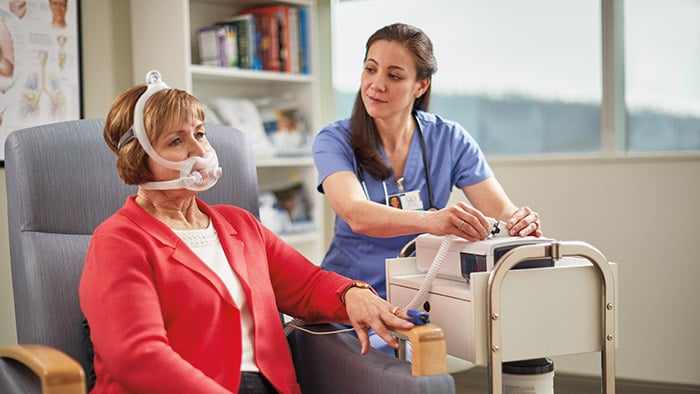
Expanding its range of patient-centric solutions for the home, Philips launched the BiPAP A40 EFL non-invasive ventilator.
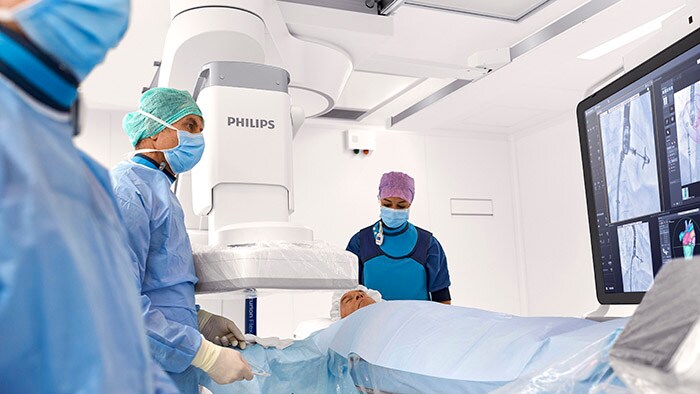
Philips signed 25 new long-term strategic partnerships in the quarter, including a 5-year technology and innovation partnership with Rennes University Hospital, one of the top 10 hospitals in France, with four sites and more than 1,800 beds.
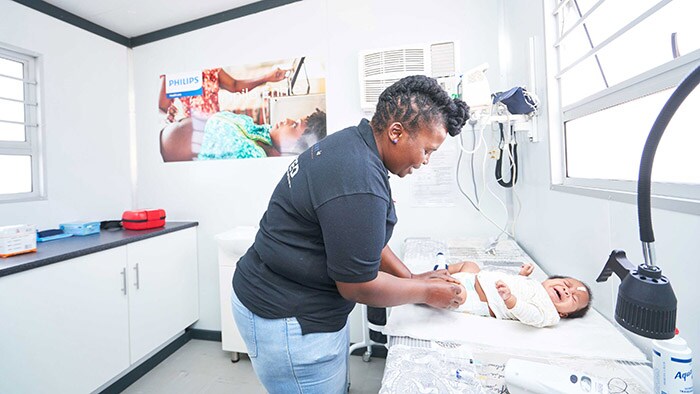
In 2020, Philips’ products and solutions improved the lives of 1.75 billion people, compared to 1.64 billion in 2019. This figure includes 207 million people in underserved communities, compared to 194 million in 2019.
Press releases
Get our press releases by e-mail
You are about to visit a Philips global content page
Continue




